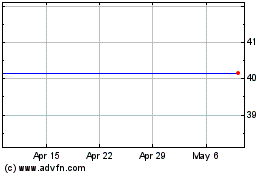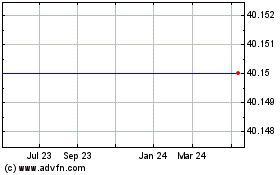via NewMediaWire -- Neovasc Inc. (“Neovasc” or the “Company”)
(NASDAQ, TSX: NVCN) today announced enrollment of the first
patient in the COSIRA-II clinical trial.
COSIRA-II (COronary SInus Reducer for the Treatment
of Refractory Angina) is a pivotal trial that will study
the Neovasc Reducer™ (“Reducer”), designed to reduce angina
symptoms in patients with refractory angina. The results of this
study will complement existing international safety and
effectiveness data and support a pre-market approval application
(“PMA”) to the U.S. Food and Drug Administration (“FDA”) for
approval of the Reducer device in the United States.
The first patient was enrolled at St. Francis Hospital &
Heart Center, Roslyn, NY, under the care of Ziad Ali, M.D., DPhil.,
and Principal Investigator Evan Shlofmitz, D.O. The patient has a
history of chronic refractory angina and previously endured
multiple cardiac catheterization procedures at various hospitals to
treat his recurrent symptoms. None of the previous procedures was
successful at alleviating his chest pain.
“Enrollment of the first patient in COSIRA-II is a major step
forward for patients in the United States suffering from chronic
chest pain,” stated COSIRA-II Executive Steering Committee member
Allen Jeremias, M.D., St. Francis Hospital & Heart Center,
Roslyn, NY. “For the first time, patients that experience the
debilitating effects of refractory angina have access to an
FDA-designated ‘Breakthrough Medical Device’ in a
placebo-controlled trial. The COSIRA-II Trial offers hope for
patients that previously had a poor prognosis and faced a future of
unrelenting chest pain.”
COSIRA-II is designed to evaluate the safety and
effectiveness of the Reducer in treating patients suffering from
refractory angina. The randomized, double blinded,
placebo-controlled trial will enroll approximately 380 patients in
the United States and Canada at as many as 50 investigational
sites. The primary endpoint of the trial is the change in exercise
tolerance testing time measured at six months via a treadmill
test.
“We are pleased to commence COSIRA-II and grateful that the
Centers for Medicare and Medicaid Services has determined the
device and the procedure are eligible for reimbursement in the
United States during the clinical trial,” commented Fred Colen,
Chief Executive Officer at Neovasc. “The coverage determination is
a big win for us. COSIRA-II is a major investment for the Company.
We are grateful to our staff and the investigators for their
relentless work to finalize all the required deliverables on
schedule, such as FDA approval, local hospital review board
approval, qualification processes, site training, and all required
legal contracts and documentation by the end of 2021, enabling this
first enrollment. Finalization of the reimbursement rate for the
trial procedure will enable Medicare beneficiaries eligible for the
trial to have greater access.”
About Reducer
The Reducer is CE-marked in the European Union for the treatment
of refractory angina, a painful and debilitating condition that
occurs when the coronary arteries deliver an inadequate supply of
blood to the heart muscle, despite treatment with standard
revascularization or cardiac drug therapies. It affects millions of
patients worldwide, who typically lead severely restricted lives as
a result of their disabling symptoms. The Reducer is designed to
alter blood flow within the myocardium of the heart and increase
the perfusion of oxygenated blood to ischemic areas of the heart
muscle, which may provide relief of angina symptoms.
While the Reducer is not approved for commercial use in the
United States, the FDA has granted Breakthrough Device designation
to the Reducer. This designation is granted by the FDA to
prioritize review of subsequent regulatory submissions for a device
that demonstrates compelling potential to provide a more effective
treatment of a life-threatening or irreversibly debilitating
disease, represents breakthrough technology for which no approved
alternatives exist or offers significant advantages over existing
alternatives, and the availability of which is in the best interest
of patients.
Refractory angina, resulting in continued symptoms despite
maximal medical therapy and without revascularization options, is
estimated to affect 600,000 to 1.8 million Americans, with 50,000
to 100,000 new cases per year.
About Neovasc Inc.
Neovasc is a specialty medical device company that
develops, manufactures and markets products for the rapidly growing
cardiovascular marketplace. Its products include Reducer, for the
treatment of refractory angina, which is not currently commercially
available in the United States and has been commercially available
in Europe since 2015, and Tiara™ for the transcatheter treatment of
mitral valve disease, which is currently under clinical
investigation in the United States, Canada, Israel and Europe. For
more information, visit: www.neovasc.com.
Contacts
Investors:
Mike Cavanaugh
ICR Westwicke
Phone: +1.617.877.9641
Email: Mike.Cavanaugh@westwicke.com
Media:
Sean Leous
ICR Westwicke
Phone: +1.646.866.4012
Email: Sean.Leous@westwicke.com
Forward-Looking Statement
Disclaimer
Certain statements in this news release contain
forward-looking statements within the meaning of the U.S. Private
Securities Litigation Reform Act of 1995 and applicable Canadian
securities laws that may not be based on historical fact. When used
herein, the words "expect", "anticipate", "estimate", "may",
"will", "should", "intend," "believe", and similar expressions, are
intended to identify forward-looking statements. Forward-looking
statements may involve, but are not limited to, potential
benefits of the Reducer, the intention to utilize the COSIRA-II
trial in support of the Company’s PMA to the FDA for approval of
the Reducer in the United States, the anticipated size of the
COSIRA-II trial, potential reimbursement that will allow
appropriate Medicare beneficiaries access to the trial, the
growing incidence of refractory angina and the growing
cardiovascular marketplace. Many factors and assumptions could
cause the Company's actual results, performance or achievements to
differ materially from those expressed or implied by the
forward-looking statements, including, without limitation, the
doubt about the Company's ability to continue as a going concern;
risks related to the recent COVID-19 coronavirus outbreak or other
health epidemics, which could significantly impact the Company's
operations, sales or ability to raise capital or enroll patients in
clinical trials and complete certain Tiara development milestones
on the Company's expected schedule; risks relating to the Company's
need for significant additional future capital and the Company's
ability to raise additional funding; risks relating to the sale of
a significant number of Common Shares; risks relating to the
possibility that the Company's common shares (the "Common Shares")
may be delisted from the Nasdaq or the TSX, which could affect
their market price and liquidity; risks relating to the Company's
conclusion that it did have effective internal control over
financial reporting as of December 31, 2020 but not at December 31,
2019 and 2018; risks relating to the Common Share price being
volatile; risks relating to the possibility that the Common Shares
may be delisted from the Nasdaq or the TSX, which could affect
their market price and liquidity; risks relating to the Company's
significant indebtedness, and its effect on the Company's financial
condition; risks relating to lawsuits that the Company is subject
to, which could divert the Company's resources and result in the
payment of significant damages and other remedies; risks relating
to claims by third-parties alleging infringement of their
intellectual property rights; risks relating to the Company's
ability to establish, maintain and defend intellectual property
rights in the Company's products; risks relating to results from
clinical trials of the Company's products, which may be unfavorable
or perceived as unfavorable; the Company's history of losses and
significant accumulated deficit; risks associated with product
liability claims, insurance and recalls; risks relating to use of
the Company's products in unapproved circumstances, which could
expose the Company to liabilities; risks relating to competition in
the medical device industry, including the risk that one or more
competitors may develop more effective or more affordable products;
risks relating to the Company's ability to achieve or maintain
expected levels of market acceptance for the Company's products, as
well as the Company's ability to successfully build its in-house
sales capabilities or secure third-party marketing or distribution
partners; risks relating to the Company's ability to convince
public payors and hospitals to include the Company's products on
their approved products lists; risks relating to new legislation,
new regulatory requirements and the efforts of governmental and
third-party payors to contain or reduce the costs of healthcare;
risks relating to increased regulation, enforcement and inspections
of participants in the medical device industry, including frequent
government investigations into marketing and other business
practices; risks relating to the extensive regulation of the
Company's products and trials by governmental authorities, as well
as the cost and time delays associated therewith; risks relating to
post-market regulation of the Company's products; risks relating to
health and safety concerns associated with the Company's products
and industry; risks relating to the Company's manufacturing
operations, including the regulation of the Company's manufacturing
processes by governmental authorities and the availability of two
critical components of the Reducer; risks relating to the
possibility of animal disease associated with the use of the
Company's products; risks relating to the manufacturing capacity of
third-party manufacturers for the Company's products, including
risks of supply interruptions impacting the Company's ability to
manufacture its own products; risks relating to the Company's
dependence on limited products for substantially all of the
Company's current revenues; risks relating to the Company's
exposure to adverse movements in foreign currency exchange rates;
risks relating to the possibility that the Company could lose its
foreign private issuer status under U.S. federal securities laws;
risks relating to the possibility that the Company could be treated
as a "passive foreign investment company"; risks relating to
breaches of anti-bribery laws by the Company's employees or agents;
risks relating to future changes in financial accounting standards
and new accounting pronouncements; risks relating to the Company's
dependence upon key personnel to achieve its business objectives;
risks relating to the Company's ability to maintain strong
relationships with physicians; risks relating to the sufficiency of
the Company's management systems and resources in periods of
significant growth; risks relating to consolidation in the health
care industry, including the downward pressure on product pricing
and the growing need to be selected by larger customers in order to
make sales to their members or participants; risks relating to the
Company's ability to successfully identify and complete corporate
transactions on favorable terms or achieve anticipated synergies
relating to any acquisitions or alliances; risks relating to
conflicts of interests among the Company's officers and directors
as a result of their involvement with other issuers; and risks
relating to anti-takeover provisions in the Company's
constating documents which could discourage a third-party from
making a takeover bid beneficial to the Company's shareholders.
These risk factors and others relating to the Company are discussed
in greater detail in the "Risk Factors" section of the Company's
Annual Information Form and in the Management's Discussion and
Analysis for the three and nine months ended September 30, 2021
(copies of which may be obtained
at or www.sec.gov). The Company has no intention
and undertakes no obligation to update or revise any
forward-looking statements beyond required periodic filings with
securities regulators, whether as a result of new
information, future events or otherwise, except as required by
law. www.sedar.com or www.sec.gov). The Company has
no intention and undertakes no obligation to update or revise any
forward-looking statements beyond required periodic filings with
securities regulators, whether as a result of new
information, future events or otherwise, except as required by
law.
Neovasc (TSX:NVCN)
Historical Stock Chart
From Dec 2024 to Jan 2025

Neovasc (TSX:NVCN)
Historical Stock Chart
From Jan 2024 to Jan 2025
